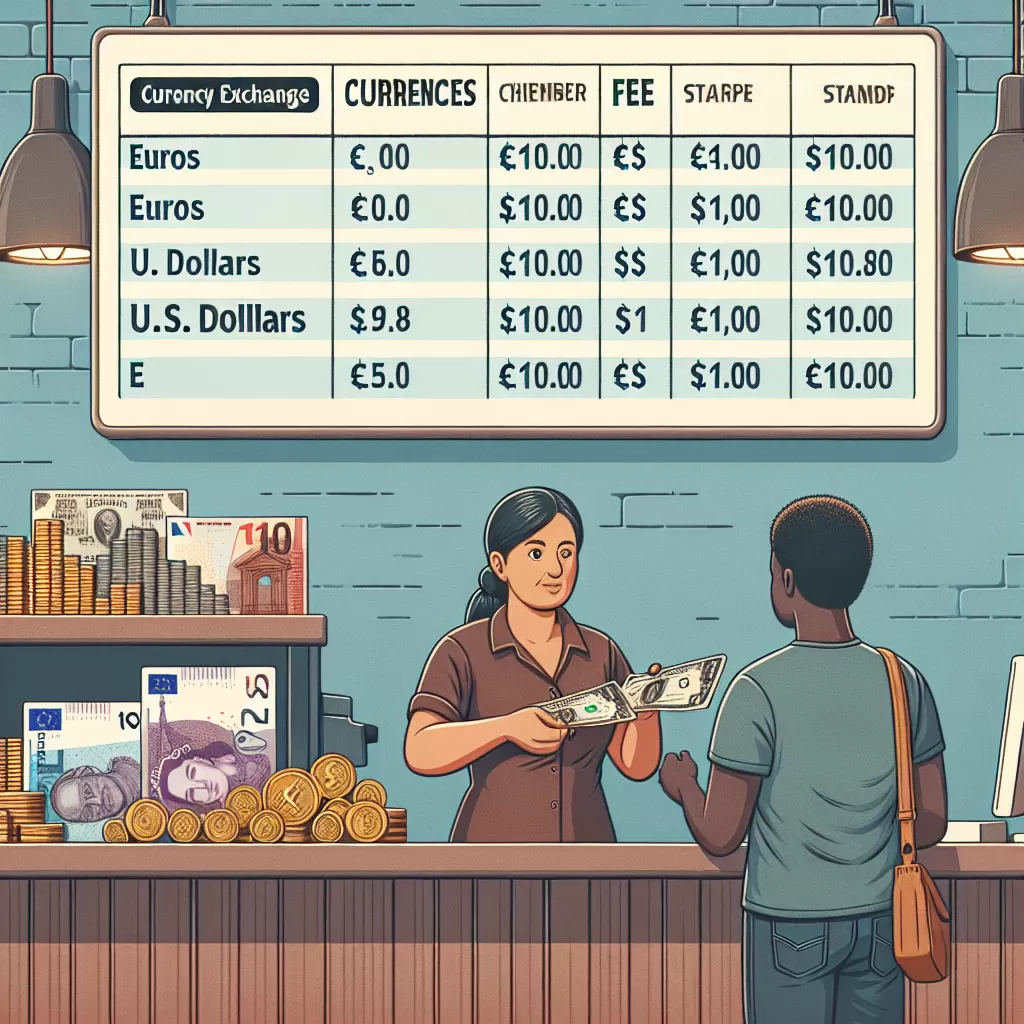How Much Is The Fee For Currency Exchange
Follow Currency Mart April 10, 2024
Where to purchase Foreign Currencies?

Introduction
As the Guardian of currency exchange, I understand your need for detailed information on the fees of foreign exchange. Today, currencies coil, twist, and convert into one another, a dance conducted within the realms of marketplaces, taxation, banks, and the digital domain. This article aims to thoroughly cover the associated fees of currency exchange considering multiple options.Bank Currency Exchange Fees
A common path taken by many to exchange currency is the traditional banking system. The fee for undertaking a currency exchange at a bank can vary significantly. The costs are incorporated into the exchange rate itself, often making it difficult to decipher the exact charge. However, it typically ranges from 2.5% to 3% of the total exchange value. Some banks might also charge an additional flat fee for the transaction, which could be around $5 to $15.Bureau de Change and Money Changers
Similar to banks, Bureau de Change fees are often hidden within the exchange rate. As these outlets operate to make a profit, the exchange rate provided is usually less favorable compared to market rates. Expect a difference of 2.5% to 9% from the market rate, which implicitly serves as their commission. Some services may additionally charge a fixed service fee, ranging from $3 to $10, but this largely depends on the provider.Online Currency Exchange Platforms
With the penchant for convenience in the digital age, online currency exchange platforms have surged in popularity. Companies like TransferWise and Revolut pride themselves on transparency and typically charge a modest fee upfront, which usually ranges from 0.5% to 3% of the total exchange transaction. Additional transaction fees may apply depending on the platform, so it's essential to check the fine print before transacting.Credit Card Foreign Transaction Fees
Travellers often use their credit cards abroad, oblivious to the foreign transaction fees involved. These charges are applied when your card issuer processes a transaction in a foreign currency. The fee is usually a percentage of the total purchase, averaging about 3%. Some cards come with no foreign transaction fees, providing you with potential savings if you travel frequently.ATM Withdrawal Fees
In case you need foreign cash in a rush, an international ATM can seem like a godsend. It's crucial to remember, though, that using a foreign ATM often comes with hefty fees. Besides the less-than-ideal exchange rate, the foreign bank may charge a fixed ATM withdrawal fee, which might be anywhere from $2 to $5. Your home bank might pile on more charges, counting towards 1% to 5% of the withdrawal amount in addition to a flat-out-of-network ATM fee.Conclusion
Having outlined various platforms for foreign exchange transactions, the associated fees can appear overwhelming. Yet, with careful research and comparison, it's possible to minimize these costs. Consider the frequency and scale of your currency exchange needs before selecting the platform that offers the best value. Remember, an informed choice could spell the difference between a dance and a duel in the realm of currency exchange. Whether you're going for an extended vacation or moving abroad, sending money to a loved one in a different country, or investing in an overseas venture, understanding exchange rates and the costs attached will empower you to participate fully in the delicate dance of currency exchange.
Where to purchase Foreign Currencies?